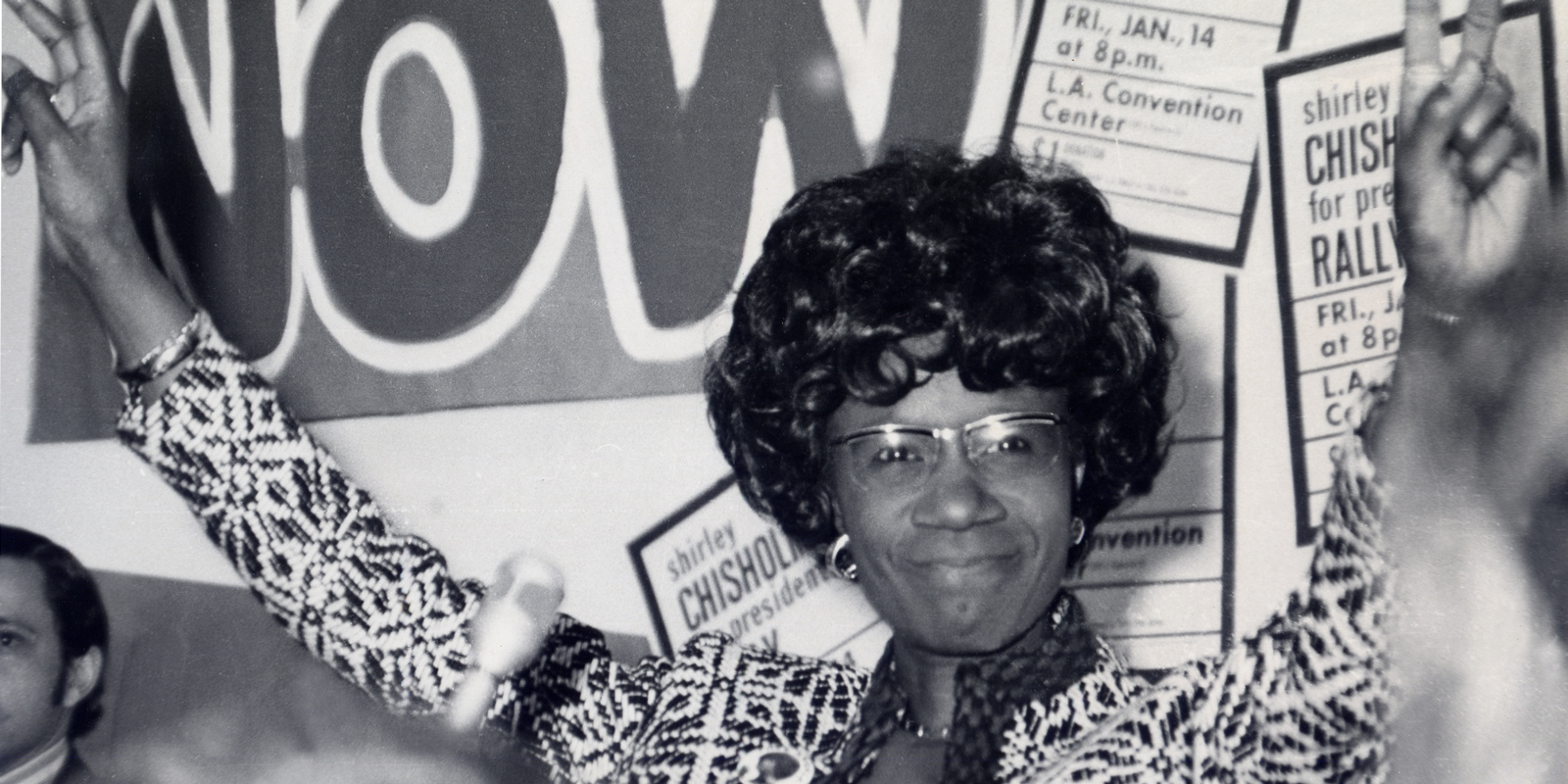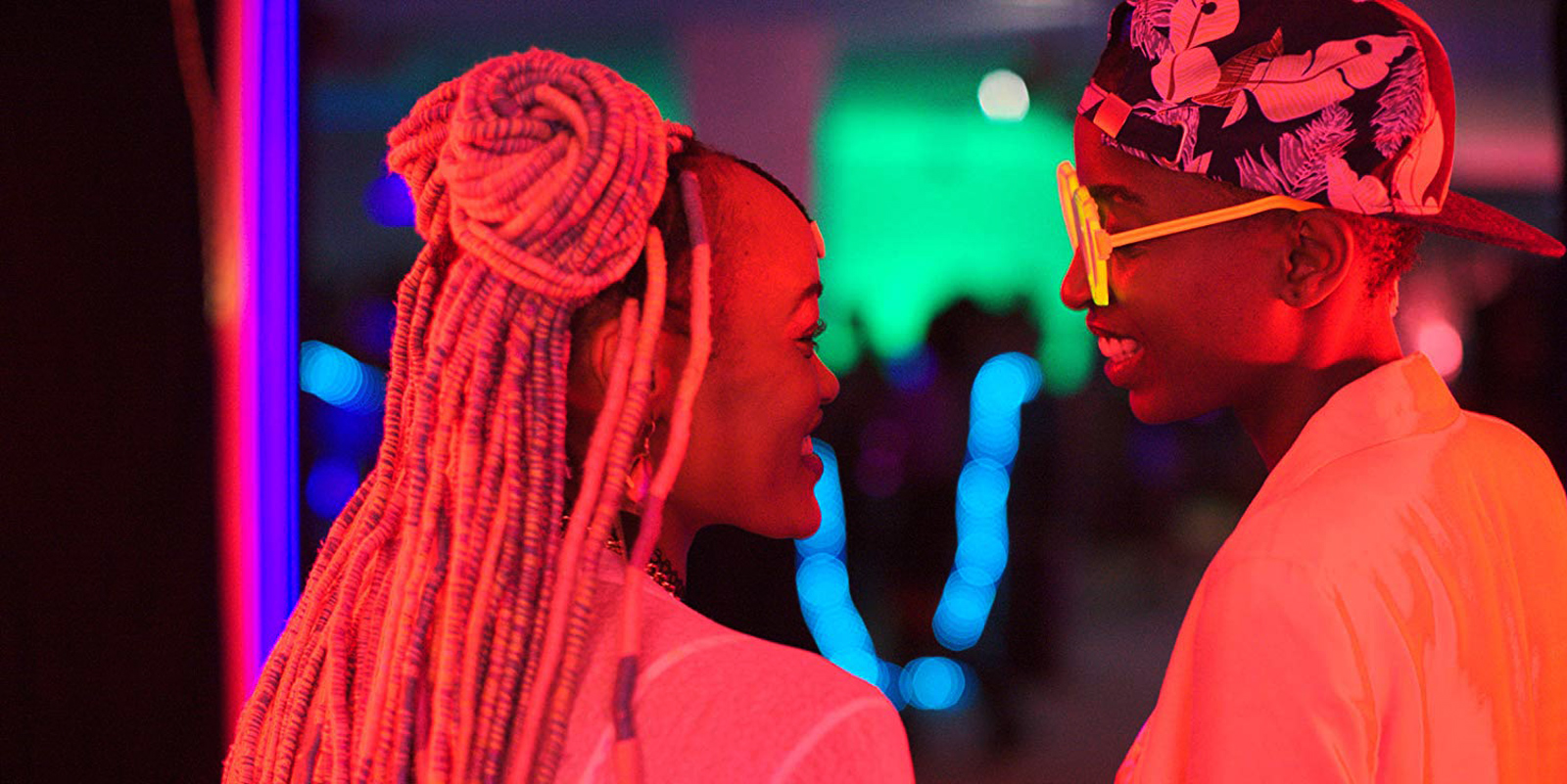
February is Black History Month, and with films Black Panther, BlacKkKlansman, If Beale Street Could Talk, Widows, Sorry to Bother You and Hale County all getting awards season nods, now is an excellent time to turn to the screen to explore the stories that shaped our past and the events and dialogues that are currently happening in Black culture.
VIFF’s Black History Month film series screens February 2–26 at Vancity Theatre, and includes two Oscar-nominated films, a rousing slam poetry doc, an Afro-futurist classic and the ground-breaking Kenyan queer love story Rafiki, which is being co-presented by the Vancouver Queer Film Festival.
We caught up with Out On Screen and Vancouver Queer Film Festival’s Artistic Director, Anoushka Ratnarajah, who spoke with us about their partnered film, and what she’s looking forward to seeing at this year’s Black History Month film series.

Anoushka is a queer, mixed-race femme of Sri Lankan and British ancestry,and an interdisciplinary artist and arts organizer who is invested in creating and supporting work that shines a light on histories and contemporary stories that are underrepresented in mainstream theatre and performance.
Q: VIFF’s annual Black History Month film series is seen as providing a significant contribution to Vancouver’s cultural diversity. What role do you think film plays in Black History Month and in this time in history, more generally?
Anoushka: That we continue to celebrate Black History Month in Vancouver with film is incredibly important and necessary for our cultural and artistic landscape. Historically, Black lives, experiences and stories have not been treated with respect or nuance on film, with portrayals of Black people contributing to racist notions of their characters and cultures held in our collective imaginations. Film is, for the most part, an accessible art form for audiences to consume, and it has had a huge impact on how we understand ourselves and others since we first began distributing and viewing moving images. Mirroring the inequity in other parts of our society, Black people did not have access to portray themselves onscreen, never mind write, direct or produce their own narratives for empathetic and interested audiences. In recent years we have seen an explosion of Black content in film and television, but Black film has a rich history and present, from filmmakers like Oscar Micheaux (the first African American to produce a feature film in 1919, and a pioneer of independent cinema) Julie Dash, John Singleton, to Raoul Peck and Spike Lee, and now rising Black creators like Barry Jenkins, Steve McQueen and Ava DuVernay. And this very in-extensive list is only of African American filmmakers, which shows my own limited range of knowledge as someone born and raised on Turtle Island consuming mainly American and Canadian culture. Black History Month at VIFF offers our city an opportunity to engage with Black stories from a range of Black voices from around the world, and engage with the history of problematic portrayals of Blackness on screen as well as the richness of international nuanced and empowered Black filmmaking.
This project is immensely important in a city where historical Black communities and projects (like Hogan’s Alley) are not given platforms to tell their stories and historically were actively destroyed and invisibilized. Vancouver still has a problem understanding it’s Black history and present, given the animosity that groups like Black Lives Matter Vancouver face whenever they plan an action. Canada, in general, has an issue understanding our Black History and present, and we tend to frame BHM within a purely American context. But Black cultural practices, production, styles, techniques, have had a worldwide influence and effect on all artistic forms. Black cinema deserves it’s own month and more, to be fully seen for its influence and innovation.
Q: Who do you think is the intended audience for the Black History Month film series?
Anoushka: Obviously the Black History Month film series offers an opportunity for Black people living in Vancouver to see their lives, histories and potentialities reflected and projected onscreen, and this is incredibly important. Black Vancouverites should be centered as audience members for this film series. And I hope that these films can attract and interest everyone who loves film and storytelling. We should all feel compelled to engage with stories that both do and do not represent us.

Q: The Vancouver Queer Film Festival is co-presenting Wanuri Kahiu’s film Rafiki on February 4th. Can you tell us a little bit about the film and why it caused controversy in Kenya when it was released?
Anoushka: Rafiki is the sophomore feature from Kenyan director Wanuri Kahiu. It premiered at Cannes and has since been screening at film festivals across the world. It follows the blossoming love story between Kena and Ziki, two young women whose fathers are competing in a local election. While their relationship quietly grows from a flirtatious friendship into a sweet and sexy romance, they have to navigate the way their relationship impacts their families, social status and personal ambitions.
Filmed with a vibrant Afro-pop colour palette, with an upbeat musical score, the film is a joyful and sensory delight, and the chemistry between the two stars, Samantha Mugatsia and Sheila Munyiva, is both gentle and electric. And even though the film is socially and politically challenging to the conservative ideals set against it, it is anything but preachy; it’s an empathetic human story of two young women coming into their own.
Rafiki was initially banned in Kenya by the country’s film classification board “due to its homosexual theme and clear intent to promote lesbianism in Kenya contrary to the law”, according to the board. Homosexuality is still criminalized in Kenya, and anyone in possession of the film would have been found to have been in breach of the law, and potentially face up to 14 years in prison. Kahiu sued the government to allow the film to be screened, and succeeded, screening the film to a sold-out cinema in Nairobi.

Q: While this is a socially and politically significant film, it’s also vibrant, lighthearted and a lot of fun. Kahiu has talked about the value of art that captures the full range of human experiences when telling stories of Africa. What do you think?
Anoushka: It’s incredibly valuable and necessary to have a catalogue of nuanced and expansive artistic work coming out of the continent of Africa. It’s a place with hundreds of languages, cultures, and millions of stories, that has been portrayed as a simplistic monolith since colonial contact. The images and stories we see of “Africa” often play into realities of poverty and desperation as if this is the only existence of people living on a continent that is not only vast in size but in experience. Every country has a middle class, has a wealthy class, has multiple religions, artistic traditions, foods, dialects… the fact that artists and storytellers like Wanuri Kahiu even have to remind audiences of this shows the deficit of representative films from African cinema.
Rafiki is adapted from a short story by acclaimed Ugandan author Monica Arac de Nyeko, and while the film’s themes can certainly be applied broadly to the experiences of queer women in many African nations, the film’s sense of place and time is incredibly specific to Wanuri Kahiu’s eye and experiences. In Rafiki, Kahiu portrays her Kenya as a complex and multifaceted place with as much difference in class, gender and sexuality as anywhere else. Her characters are particular and individual and contextualized within their nationalities, familial relationships, socio-economic classes, gender identities and personalities. Kena, Ziki and their friends and families are people, not symbols or caricatures. Their struggles and joys are human as much as they are particularly Kenyan and queer.
Q: Apart from Rafiki, which other Black History Month films are you especially excited to see this year?
Anoushka: I’m really excited to see Supa Modo, which is Kenya’s submission to Best Foreign Language Film at the Oscars, and Don’t be Nice, which I think are both going to capture some #blackgirlmagic in different ways. But the film I’m most excited for is Sankofa, which deals with similar themes as Octavia Butler’s Kindred, which is one of my all-time favourite science fiction novels.
